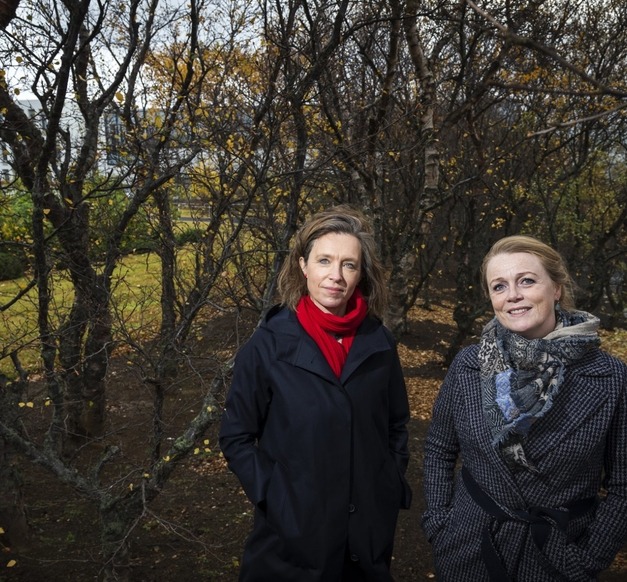Ragnheiður Kristjánsdóttir Associate Professor and Erla Hulda Halldórsdóttir Assistant professor, both at the Faculty of History and Philosophy
"It is interesting that in Iceland, often called a paradise of equality that women struggled in politics for a long time. This history has not been thoroughly researched. This is one of the things we are going to study," says Erla Hulda Halldórsdóttir, Associate Professor in feminist and gender history about an extensive research project she is working on with Ragnheiður Kristjánsdóttir, Associate Professor in history, and Þorgerður Þorvaldsdóttir, specialist at the University of Iceland's history institute.
This is a study in the social- and cultural history of women as political agents in the 20th century and into the 21st century. The study received a grant from the Rannís (Icelandic Centre for Research) Research Fund in 2017. "The aim of the study is to examine how Icelandic women utilised the civil rights they acquired in the first decades of the 20th century; i.e. the right to vote, eligibility and the right for education and office, to be a full-fledged citizen and take active part in moulding modern Iceland," says Ragnheiður.
Erla and Ragnheiður were asked to write a book on women in society and politics in the 20th century on the occasion of women's suffrage centennial in 2015. "We recruited Þorgerður Þorvaldsdóttir, PhD in gender studies for this project, but soon realised that we wanted to take this further and do more extensive research. This included linking the study to what is happening in this field of research abroad," says Erla on how it all began.
Ragnheiður Kristjánsdóttir and Erla Hulda Halldórsdóttir
"The aim of the study is to examine how Icelandic women utilised the civil rights they acquired in the first decades of the 20th century."

Hanna Guðlaug Guðmundsdóttir is also working on the project with Erla, Ragnheiður and Þorgerður. They all share a vivid interest in women's history even though their perspectives vary. "We found it thrilling working together to shed new light on women's history; including the History of Iceland in the 20th century. Parts of this period have been a little left out in women's history," Ragnheiður says, and Erla agrees. "We consider this an extremely important study for the history of the 20th century. Women's history has not been voluminous in that period, and the masculine view has generally been predominant in political history.
Some results have already been published. "Þorgerður showed, in an article in the spring issue of Saga in 2017, how the concept of intersectionality can be used in history to examine the discrimination still current after women got the right to vote. Ragnheiður's research on women in political work, both in parliament and in organisations, show that women struggled with both visible and invisible obstacles, e.g in parliament, but it is amazing to see how well they managed to work together despite different political views. I am writing an article on women's historiography and their part in the history of Iceland prior to academic women's history. Some people may not see the relevance of the history we are studying, but as soon as one starts to examine women's magazines in the 20th century and memoirs, it becomes evident that they are consciously and systematically creating their own story, creating their place in national history and thus bolstering the confidence of the women who entered the public sphere. Women simply had to have a history and role models that they could then use as reasoning that women should take active part in shaping society," says Erla.


